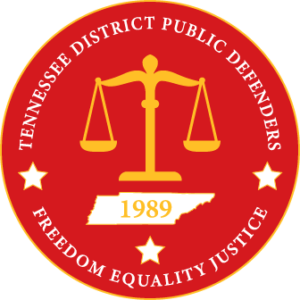The United States Supreme Court’s recent decision in Smith v. Arizona blunts the State’s ability to substitute experts at trial with the substitute expert basing their testimony on the original expert’s notes or reports. The Court’s ruling in this case opens the door to challenging Tennessee’s existing stance on this issue as outlined in State v. Hutchison.
In Smith, the defendant was found with a large quantity of what appeared to be drugs and potential drug paraphernalia. He was charged with several drug-related offenses and several seized items were sent to a crime lab for analysis. The drug analyst, Rast, ran forensic tests on the items and concluded that they contained usable quantities of several drugs. The analyst prepared typed notes and a report about the testing. However, Rast was not called to testify at trial, and instead the State substituted another analyst, Longoni, to provide an independent opinion on the testing performed by Rast. On appeal, Smith argued that the State’s use of a substitute expert to convey the substance of Rast’s documents violated the Confrontation Clause because Rast was the true witness against him and he was not afforded the opportunity to cross examine her.
The Court stayed true to prior rulings which state that only testimonial hearsay is subject to the Confrontation Clause and concluded that Smith could only prevail if Rast’s notes and report were statements that came into evidence for their truth and were therefore hearsay. The Court held that “truth is everything when it comes to the kind of basis testimony presented here. If an expert for the prosecution conveys an out-of-court statement in support of his opinion, and the statement supports that opinion only if true, then the statement has been offered for the truth of what it asserts.” The basis evidence is only useful to the prosecution if it is true, further demonstrating that such statements are hearsay, and if testimonial, are inadmissible because they violate the Confrontation Clause.
The Court declined, however, to determine whether Rast’s statements were testimonial. The Court noted that a trial court must first identify the out-of-court statement that the State is seeking to introduce and then after assessing the relevant circumstances, determine the “principal reason” that the statement was made. The Court suggests that trial courts consider whether the documents have an evidentiary purpose or “a focus on court.” But beyond these suggestions, the Court declined to make any finding on whether Rast’s statements were testimonial because that issue was not litigated below. Instead, the Court vacated the judgment and remanded the case for that determination to be made.
In Tennessee, Hutchison remains intact, but it has been weakened. Hutchison suggested that there was no scenario in which substitute expert testimony could violate the Confrontation Clause. To that extent, Hutchison has been overruled. The challenge going forward will be to prove that the autopsy, lab report, or any other document that the State seeks to introduce through substitute testimony is testimonial in nature under the primary purpose test.
